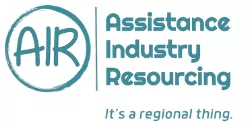Mental Health
For Mental Health Workers
Are you looking for your next work engagement in your career in Mental Health? WORKrNOW gives you the opportunity to present yourself to prospective employers. Simply Join the group and establish your profile. Employers interested in you will contact you and start off a conversation to get to know you better.
For Mental Health Employers
WORKrNOW is not a job ads platform, but a platform giving interested individuals the opportunity to present themselves. Browse profiles and match them with your needs. Join the user group to be able to be able to contact the workers you are interested in.

About working in Mental Health in Australia
Mental health work environments in Australia encompass a wide array of settings dedicated to providing support, treatment, and advocacy for individuals experiencing mental health challenges. Professionals in this field work in diverse settings such as hospitals, community health centers, private practices, non-profit organizations, and government agencies. Their roles range from providing direct clinical care to conducting research, policy development, and community outreach.
Hospitals, both public and private, serve as key environments for mental health professionals. Psychiatrists, psychologists, psychiatric nurses, and social workers collaborate to assess, diagnose, and treat individuals with mental illness. Inpatient units offer intensive care for acute conditions, while outpatient services provide ongoing support and therapy for individuals managing chronic mental health issues.
Community health centers play a vital role in delivering accessible and integrated mental health services to diverse populations. General practitioners, counselors, and allied health professionals work together to provide early intervention, counseling, and referrals to specialized care when needed. These centers often prioritize holistic approaches that address the social determinants of mental health, such as housing, employment, and social support.
Private practices offer individuals the opportunity to access personalized mental health care from psychologists, counselors, and psychotherapists. Practitioners in private practice often specialize in specific modalities or populations, such as cognitive-behavioral therapy, trauma-informed care, or working with children and adolescents. They may also offer telehealth services to reach clients in remote or underserved areas.
Non-profit organizations and government agencies focus on mental health promotion, advocacy, and support for vulnerable populations. These organizations may run community programs, helplines, and outreach initiatives aimed at reducing stigma, raising awareness, and connecting individuals with resources. Mental health workers in these environments often collaborate with community partners to address systemic barriers to care.
To work in mental health roles in Australia, individuals typically need relevant qualifications and registration. This may include degrees in psychology, social work, counseling, or psychiatry, along with professional registration or accreditation from organizations such as the Psychology Board of Australia or the Australian Health Practitioner Regulation Agency (AHPRA). Continuing education and professional development are essential for staying updated on best practices and maintaining competency in this dynamic field.
In summary, mental health work environments in Australia offer diverse opportunities for professionals to make a meaningful impact on individuals, families, and communities’ well-being. Whether in hospitals, community centers, private practices, or advocacy organizations, mental health professionals play a crucial role in promoting resilience, recovery, and social inclusion for those experiencing mental illness.

